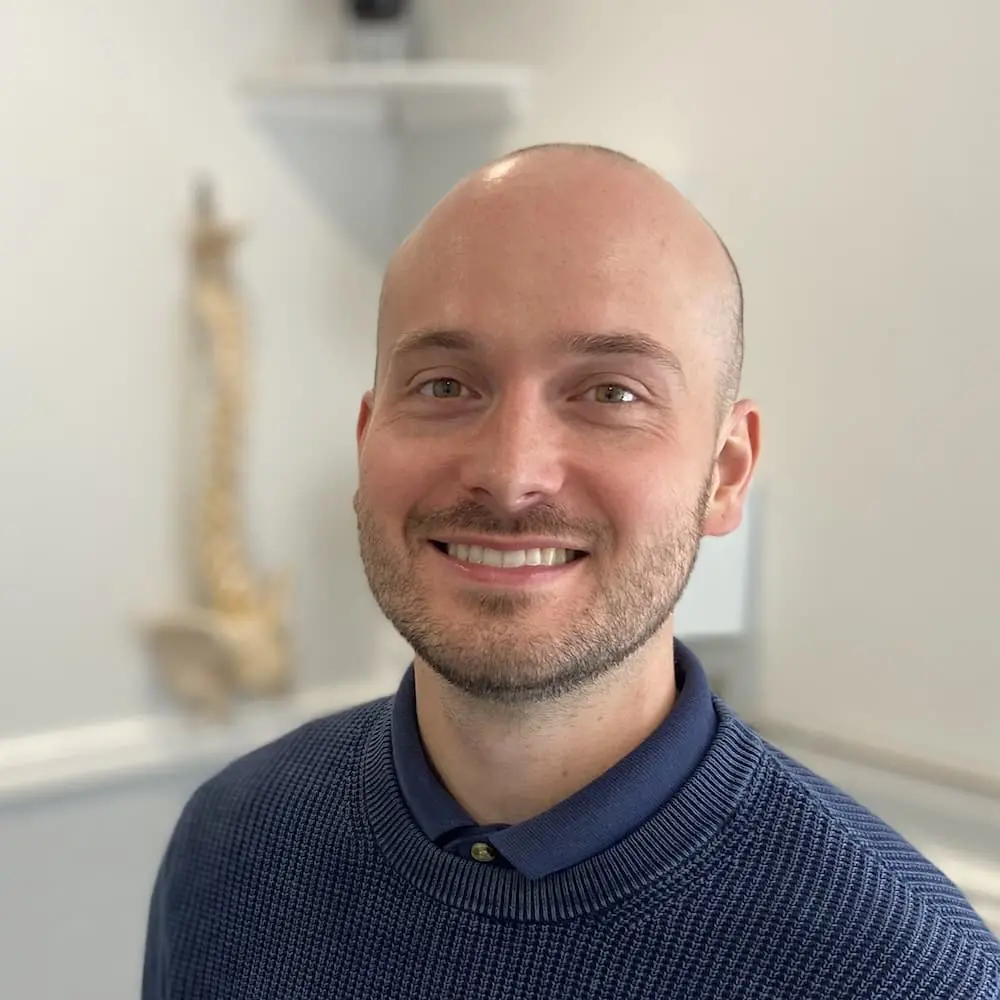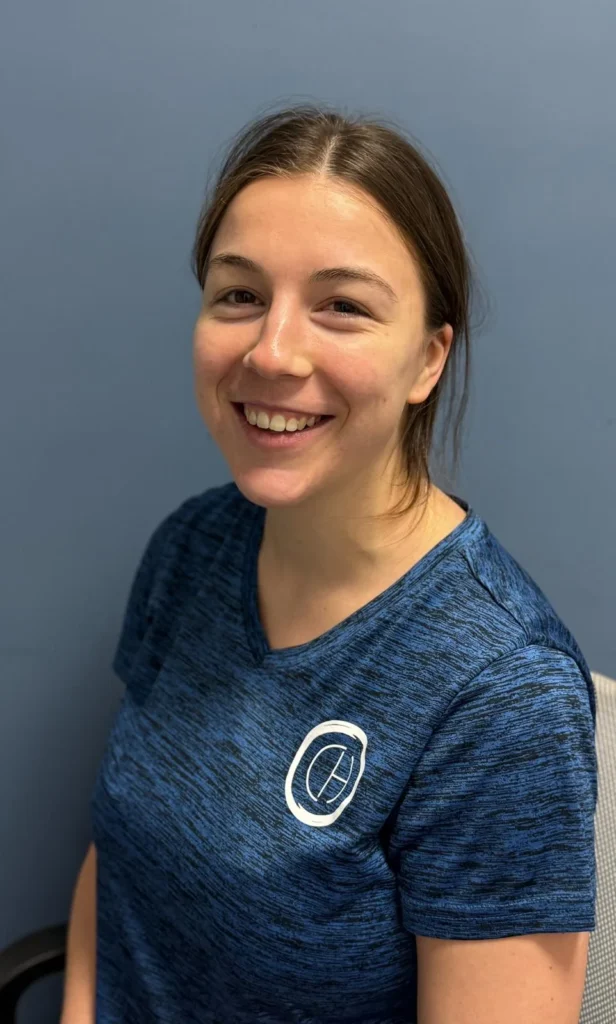Shoulder pain
Shoulder pain
Shoulder pain can be extremely disruptive. The shoulder joint, or glenohumeral joint, and it’s surrounding structures are complex and often highly sensitive. We can categorise shoulder issues in a variety of ways and we can experience pain or dysfunction in our shoulders for an array of reasons. However, often these issues are not specific to a particular tissue, structure or reason, giving us more generalised symptoms and dysfunctions. It can often be helpful to consider these issues as ‘non-specific shoulder pain’ or simply a ‘stiff and painful shoulder’ or a ‘weak and painful shoulder.’ Either way, understanding your shoulder pain is the most important first step of treating it.
What other conditions are associated with shoulder pain?
- Subacromial shoulder pain, classically referred to as ‘impingement’ refers to pain in the front of the shoulder which can often be tendon related, or secondary to overuse or weakness around the shoulder.
- Shoulder instability: This may be pathological or as a result of an injury which has created laxity or reduced congruency of the structures which provide stability to the shoulder joint, such as a dislocation. This can increase friction and irritation in and around the shoulder joint.
- Tendinitis or bursitis: Inflammation of the tendons of the shoulder joint or the bursae (fluid-filled sacs that provide smooth movement and cushioning) which cover most of the joint.
- Rotator Cuff Injuries: Tears or strains in the muscles and tendons that stabilise the shoulder joint can lead to pain and can often significantly restrict range of motion.
- Frozen Shoulder (Adhesive Capsulitis): A condition which is classically identified by profound stiffness and very limited range of movement.
- Arthritis: Shoulders are susceptible to degeneration referred to osteoarthritis or rheumatoid arthritis which is characterised by inflammation, pain and stiffness.
- Nerve issues: Conditions like thoracic outlet syndrome or nerve irritation in the shoulder, brachial plexus or neck can lead to pain but is typically identified as tingling or numbness in the shoulder, arm or hand.
What are the symptoms of shoulder pain?
The symptoms of shoulder pain can vary based on the underlying cause, but commonly include:
- Dull, aching, or sharp pain in the shoulder area.
- Weakness in the affected arm or difficulty lifting objects.
- Limited range of motion or difficulty moving the arm.
- A feeling of stiffness, meaning it is difficult to take the shoulder through the range of movement which is available
- Swelling, tenderness, or warmth around the shoulder.
- Numbness or tingling radiating down the arm.
- Clicking or popping sensations during movement.
What are some causes of shoulder pain?
- Trauma: Direct impacts, falls, or accidents can cause fractures, dislocations, and soft tissue injuries in the shoulder area which can result in tendon injuries, bony or joint injuries.
- Overuse: Repetitive motions, such as those involved in sports like tennis or swimming, or occupational activities like lifting heavy objects, can lead to muscle strains, tendonitis, and other overuse injuries.
- Dislocations: The shoulder joint can become dislocated when the ball-shaped head of the upper arm bone pops out of the shoulder socket.
- Sprains: Ligaments that connect bones can be stretched or torn, causing sprains and instability.
- Nerve Injuries: Nerves in the shoulder region can be pinched, compressed, or injured, leading to pain, numbness, or weakness.
- Osteoarthritis: Over time, wear and tear on the shoulder joint can lead to osteoarthritis, causing inflammation, pain, and reduced range of motion.
- Calcific Tendonitis: This occurs when calcium deposits form in the tendons of the shoulder, leading to inflammation and pain.
- Referred Pain: Pain originating from other areas but felt in the shoulder due to shared nerve pathways.
What is the best treatment for shoulder pain?
- Physiotherapy: Tailored exercises programming, movement re-education and manual therapies like massage and mobilisations improve shoulder strength, function and range of movement.
- Activity Modification: Avoid activities that aggravate the pain and give the symptoms time to settle down
- Anti-Inflammatory Medications: Prescription medications to reduce inflammation and pain.
- Lifestyle Changes: Improving posture, maintaining a healthy weight, and avoiding overuse can prevent recurrence.
- Education and Self-Care: Learning proper body mechanics, posture, and self-care techniques can help prevent future issues.
- Shockwave: In some cases, particularly if the issue is tendon related,
Who should I see to fix shoulder pain?
To address shoulder pain, you can start by consulting a few different types of healthcare professionals, depending on the severity and potential underlying cause of your pain:
- Physiotherapist: A physiotherapist is often the most helpful first port of call for shoulder pain. They are healthcare professionals who specialise in anatomy, structure and function of joints. They can provide individualised guidance on rehabilitation exercises, activity modification and symptom management to improve shoulder pain and function. In cases where physiotherapists can’t help, they are best placed to make an accurate recommendation on which health professional you should see instead.
- GP: GP’s can evaluate your condition well in the context of your overall health and medical background. They can often provide basic initial treatment and refer you to specialists if needed.
- Orthopedic doctor: If your pain is related to musculoskeletal issues or injuries, an orthopedic doctor specialises in the diagnosis and treatment of bone and joint conditions, including shoulder arthritis or serious joint disorders.
- Pain Management Specialist: For more persistent or chronic pain, a pain management specialist can offer comprehensive approaches, including medications, injections, and therapies.
Is exercise good for shoulder pain?
Yes, exercise can be beneficial for shoulder pain. Exercise can help improve shoulder strength, flexibility, and range of motion, which can aid in recovery and reduce the risk of or improve preparedness for future issues. However, the type and intensity of exercises should be tailored to your specific condition and guided by a healthcare professional.
- Strengthening Exercises: Strengthening the muscles around the shoulder can provide better stability and support. Examples include resistance band exercises, dumbbell exercises, and bodyweight movements.
- Mobility or stretching exercise: Gentle stretches can help maintain or improve shoulder flexibility. Stretches should be done carefully to avoid further strain.
- Cardiovascular exercise: Engaging in low-impact cardiovascular activities like walking or stationary cycling can improve overall circulation and support the healing process.
- Stability Exercises: These exercises can help improve your overall shoulder function and coordination, particularly for ‘unstable’ shoulders such as those which have suffered dislocation
Will I need surgery for shoulder pain?
Whether or not you’ll need surgery for shoulder pain depends on several factors, including the underlying cause of your pain, the severity of your condition, and how well you respond to conservative treatments. In many cases, shoulder pain can be effectively managed without surgery. Conservative treatments, such as rest, physical therapy, medications, and lifestyle modifications, are often the first line of approach.
Surgery is typically considered when:
- Structural Issues: Conditions like recurrent shoulder dislocations, certain types of impingement, and joint instability might necessitate surgery to stabilise or correct the structural problem.
- Nerve Compression or Damage: In cases of severe nerve compression or damage, surgery might be needed to relieve pressure or repair the nerve.
- Acute Trauma: Traumatic injuries, such as complex fractures or dislocations, might require surgical intervention for proper healing.
Chews Health top tip for shoulder pain
Make sure you and your clinician have gotten to the bottom of what is causing your shoulder pain. This does not mean you always need to know the specific tissue, muscle, tendon or bursa which is affected. Often, boiling your shoulder issue down to ‘non-specific’ or ‘weak and painful’ or ‘unstable’ or ‘stiff and painful’ are specific enough criteria to be able to formulate a thorough and rigorous treatment plan.
Everyone’s condition is unique and therefore needs a tailored plan to help resolve it. This must be tailored to your needs, working on what you struggle with in the areas and positions you struggle in.
Our Specialists
Posted onTrustindex verifies that the original source of the review is Google. Tennis elbow pain issue resolved in 3 physio - therapy sessions with Richard Saxton. Back to Badminton and Cricket as normal. Many thanksPosted onTrustindex verifies that the original source of the review is Google. I was referred to Chews Health for shockwave therapy for long term IT Band syndrome. Jon Shurr was excellent at talking me the through the process, setting my expectations and listening to my concerns. I just expected to receive the intervention with Jon but what I actually got was a patient-centred, holistic approach to my condition. Jon was excellent at setting physical challenges to test my knee pain and amending approaches when needed. Having completed my course of shock wave therapy I am feeling the improvements and continue to challenge my knees!! I am so pleased with the success of this therapy and am very grateful to Jon.Posted onTrustindex verifies that the original source of the review is Google. Outstanding care and a well-tailored set of stretches and exercises to address my problems and to keep me in shape. Thank you, Jack!Posted onTrustindex verifies that the original source of the review is Google. I have had a great experience here. I went for a knee injury and they’ve helped me so much build my strength back up. I would definitely recommend. The staff are lovely and really care about your improvements and your injury. Very thankful!Posted onTrustindex verifies that the original source of the review is Google. Highly recommended. My Physio (Jack initial assessment and follow up with Fio) completely understood the issue and worked with me to fix the issue. Thanks for you help.Posted onTrustindex verifies that the original source of the review is Google. I would highly recommend Chews Health. I have seen Jon for help with improving muscle strength in my arms and legs. I am in late 70's and presently seeing him every week because of hip pain. The exercises are helping me cope with an ongoing problem. Thank you. DotPosted onTrustindex verifies that the original source of the review is Google. Jack was incredibly helpful in advising on, and treating, my knee injury which was preventing me from training for the Manchester marathon. Jack was able to explain the cause in a really clear way and created a bespoke training and physio plan which enabled me to run the marathon without the level of pain I had been experiencing. Jack has also significantly improved my running form through his advice and the use of the high tech equipment and analysis software available in each session. Thanks to Jack for enabling me to complete the marathon (and enjoy it!) and for continuing to support on my running journey!Posted onTrustindex verifies that the original source of the review is Google. Great service. Jack was honest and straightforward explaining the rationale behind exercises/decisions. Pragmatic approach focused on getting me safely back to sportPosted onTrustindex verifies that the original source of the review is Google. Have waited a few months post-treatment to write a review - just to be certain! Quite simply, I can't recommend these guys highly enough. I went to them with two badly damaged knees (miniscus tears). Having had three arthroscopes over the years, I was completely resigned to needing surgical intervention again. The Chews team had different ideas. After showing me the latest research findings, they assured me my knees could be rehabilitated without a scalpel. I had just a handful of sessions with them and am delighted to report that, six months on, my knees are great! I'm running 5k twice a week (don't laugh, I loathe running and am no spring chicken) without any pain and have taken up tennis. Everyone at Chews is passionate about their subject, knowledgeable, reassuring and friendly. I wouldn't go anywhere else.Posted onTrustindex verifies that the original source of the review is Google. Couldn’t recommend Chews health enough. Jack’s experience and expertise allowed me to identify my problems and gradually build the strength and ability to return to running pain free.Google rating score: 5.0 of 5, based on 116 reviews




